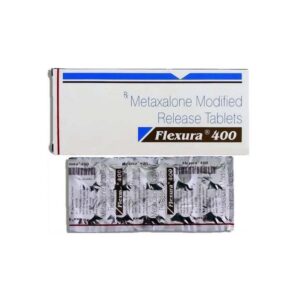Cyclobenzaprine Information
Pronunciation
sye kloe BEN za preen
What is this drug used for?
• It is used to relax muscles.
Frequently reported side effects of this drug
• Fatigue
• Dizziness
• Loss of strength and energy
• Dry mouth
• Constipation
• Nausea
Other side effects of this drug: Talk with your doctor right away if you have any of these signs of:
• Fast heartbeat
• Abnormal heartbeat
• Serotonin syndrome like dizziness, severe headache, agitation, sensing things that seem real but are not, fast heartbeat, abnormal heartbeat, flushing, tremors, sweating a lot, change in balance, severe nausea, or severe diarrhea.
• Signs of a significant reaction like wheezing; chest tightness; fever; itching; bad cough; blue skin color; seizures; or swelling of face, lips, tongue, or throat.
Medication Safety Issues
Sound-alike/look-alike issues:
Cyclobenzaprine may be confused with cycloSERINE, cyproheptadine
Flexeril may be confused with Floxin
Geriatric Patients: High-Risk Medication:
Beers Criteria: Cyclobenzaprine is identified in the Beers Criteria as a potentially inappropriate medication to be avoided in patients 65 years and older (independent of diagnosis or condition) because most muscle relaxants are poorly tolerated in older adults due to anticholinergic effects caused by some muscle relaxants, risk of sedation, and an increased risk of fracture. Cyclobenzaprine has strong anticholinergic properties. In addition, efficacy is questionable at doses tolerated by geriatric patients (Beers Criteria [AGS 2019]).
Pharmacy Quality Alliance (PQA): Cyclobenzaprine (as a single agent or as part of a combination product) is identified as a high-risk medication in patients 65 years and older on the PQA’s, Use of High-Risk Medications in the Elderly (HRM) performance measure, a safety measure used by the Centers for Medicare and Medicaid Services (CMS) for Medicare plans (PQA 2017).
Storage and Stability
Capsules: Store at 25°C (77°F); excursions are permitted to 15°C to 30°C (59°F to 86°F).
Tablets: Store between 20°C and 25°C (68°F and 77°F).
Adverse Reactions
Central nervous system: Confusion, decreased mental acuity, dizziness, drowsiness, fatigue, headache, irritability, nervousness
Gastrointestinal: Abdominal pain, acid regurgitation, constipation, diarrhea, dyspepsia, nausea, unpleasant taste, xerostomia
Neuromuscular & skeletal: Weakness
Ophthalmic: Blurred vision
Respiratory: Pharyngitis, upper respiratory tract infection
Rare but important or life-threatening: Anaphylaxis, angioedema, cardiac arrhythmia, convulsions, hepatitis (rare), hypertonia, hypotension, paresthesia, psychosis, seizure, serotonin syndrome, skin rash, syncope, tachycardia



